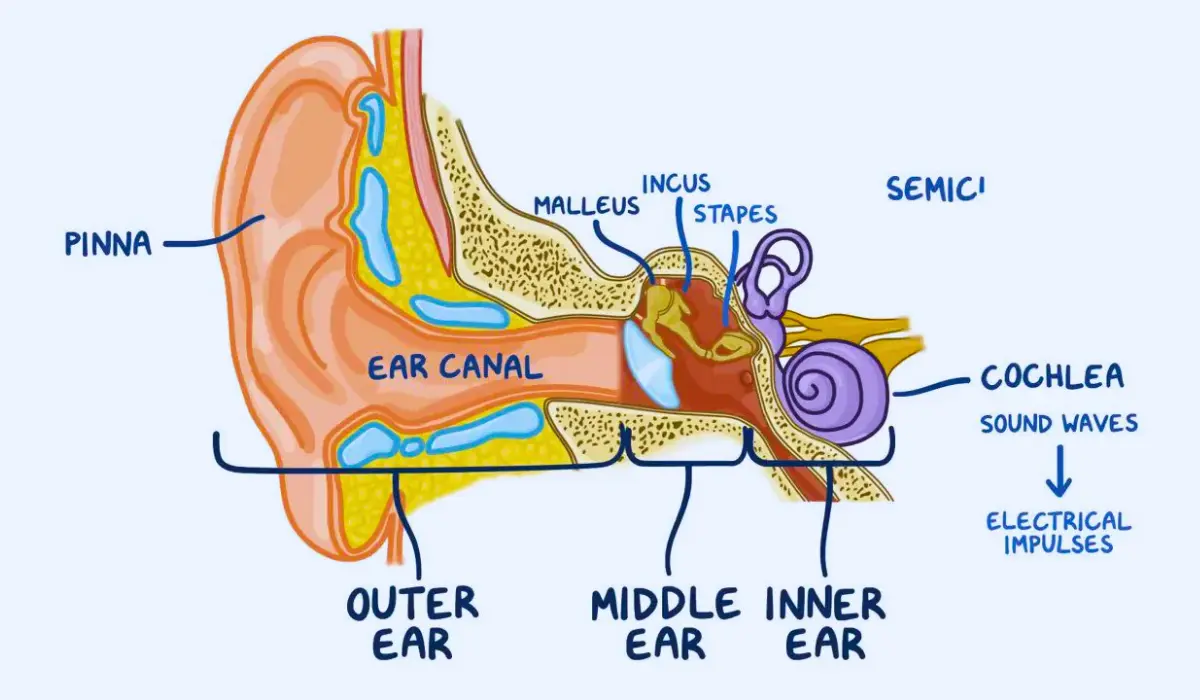Nature has blessed many of us with the power of hearing, allowing us to explore the auditory experiences around us. However, in the middle of our modern, fast-paced lifestyle, our ears are subjected to constant exposure to loud noises. Although this exposure and other easy lifestyle choices appear enjoyable, they are slowly deteriorating our hearing health.
Today is the right time to look after your ear’s health, and we have the best tips to start with.
7 Ways For Healthy Hearing- Ear Protection
Whether you are diagnosed with hearing loss or not, these tips will help you protect your ears and hearing power. Start all of these actions right away to reverse regret in the future.
Keep the Volume Low ‘Always’
The noise of your devices, including mobile phones, TV, sound systems, radio, etc, should be comfortable enough to reach to ears (and not loud enough to fill the room). Any volume that is floating to the next room or rest of the house is a ‘Noise.’ Try bringing subtle changes from your home or office, ideally where you spend the most time of your day.

Avoid Public Places with Loud Noises
The most common cause of hearing loss is loud noises.
Noise at concerts, huge public gatherings, at environments with large machinery, near aircraft, etc, are all harmful to your hearing health.
According to the National Institute of Deafness and Other Communication Disorders (NIDCD), millions of Americans experience hearing loss after prolonged/ regular exposure to loud noises. Any sound that is 85 decibels or louder can damage your ears in the long run.
Hearing Loss From Loud Noises: As sound waves travel through the ear canal, they create a vibration in the eardrums. This vibration is further transferred to small bones in the middle of the ear, amplifying the sound. It then transmits to the inner ears, where tiny hair cells respond to different sound frequencies. Now, as we expose our ears to loud sounds for a long time, it causes damage to the tiny hair cells, leading to temporary or permanent hearing loss. Over time, with added exposure, it can result in hearing impairment or even deafness.
When avoiding moving away from loud noises in public places (or work environments) is not possible, use earplugs or other hearing protection.
Incorporate an exercise routine.
Exercise increases circulation and allows capillaries to deliver oxygen and blood to your ears. An improved blood flow in and around the ear structure preseves cochlea and is also essential for the tiny hair cells at the inner portion of the ears. Since these hair cells do not regenerate, maintaining their health is an extremely important part of overall ear care.
Spend 30 to 45 minutes jogging or walking At least 5 times a week. Or, play any sport, plan a hike, or practice yoga to increase overall blood flow.
Give your Ears a Break
Giving your ears a break is an important concept to preserve healthy hearing. This break allows ears time to recover from the impact of loud noises and improve the overall auditory response.
Practice a few minutes of silence every hour if your daily job exposes you to constant noises.
Or, incorporate a session of quietness in your day, preferably amidst nature, to balance out the exposure to noises.
Stop Smoking ‘Right Away’
Smoking is injuries to health and in a number of ways. For the unknown, smoking has been associated with an increased risk of hearing loss.
In fact, reports from the National Library of Medicine (MLM) suggest that smoking can block the Eustachian tubes, which play an important role in maintaining air pressure in the eardrums. Not only that, but nicotine in cigarettes, when absorbed into the bloodstream (via the lungs), can impact the neurotransmitter activities in the central nervous system, particularly in the auditory nerves. Prolonged exposure to nicotine is associated with age-related hearing loss and even hearing impairment.
So, if you smoke, stop immediately, and if you don’t, never start.
Do Not allow excessive Ear Wax build-up.
Ear wax acts as a natural defense mechanism that protects the inside of the ear from exposure to any foreign objects. Glands in our outer ear produce ear wax, with probably different colors and consistency from individual to individual.
Although cleaning ear wax isn’t recommended, wax acts as a protective layer for our ears. However, for some individuals, excessive ear wax buildup is common, and if not cleaned timely, it may lead to muffled sounds or even mild hearing loss.
Upon experiencing blockage due to excessive ear wax, it is advisable to
consult an ENT. The concerned doctor will carefully remove the excessive ear wax using appropriate tools while ensuring ear safety.
Focus on your Food
Although there’s no magic food that can improve hearing, a nutritious diet can ensure overall ear care. Some food items that are generally associated with good ear health include:
- Vitamin D in the form of fortified dietary products and fatty fish. Vitamin D helps support bone health (the tiny bones) in the middle of the ears.
- Zinc in the form of seeds, nuts and meat. Whereas Vitamin C via bell peppers, citrus fruits, and strawberries. Both Zinc and Vitamin C helps in the prevention of ear infection.
- Folate through leafy green, beans and lentils helps in preventing age-related hearing loss.
- Magnesium through leafy green nuts, whole grains, and seeds helps protect against noise-induced hearing loss.
- Omega-3 Fatty Acid in the form of flaxseeds, chia seeds, salmon, and trout helps in maintaining proper blood flow in the ears.
Also Read: Early Stage Signs And Symptoms Of Hair Breakage
Conclusion
Besides focusing on your hearing health, it is important to keep a check with an Otolaryngologist (ENT doctor) regularly. If you are between 18 to 50, get your hearing test done every 2 years. Or, if you are 60 and above and have any family history of hearing loss, get your hearing checked every year.
Remember, hearing loss is gradual, and today is the right time to focus. And if you aren’t alarmed enough, note it down, “Not all hearing loss can be reversed”.

